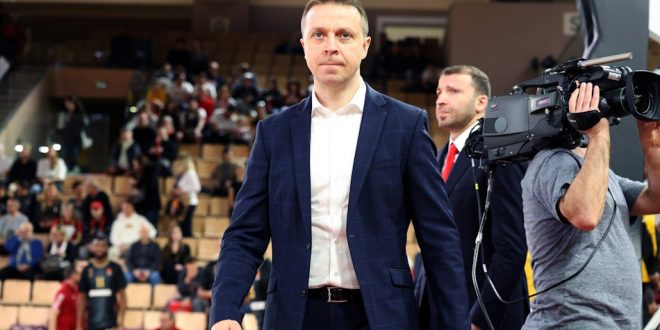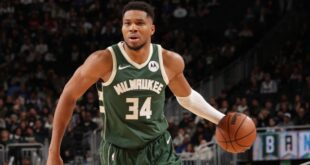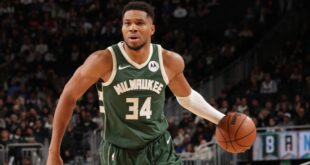Paulius Motiejunas, the Chief Executive Officer of Euroleague Basketball, addressed comments made by NBA commissioner Adam Silver and FIBA secretary general Andreas Zagklis during a press conference on Thursday, marking a shift in European basketball.
“I wouldn’t categorize it as a declaration of war,” he shared with L’Equipe’s Yann Ohnona. “The positive takeaway is that there is a consensus that European basketball is advancing significantly, and its potential has never been higher. We are encouraged by the NBA’s interest in collaborating with FIBA to explore this market further. We know this domain intimately—we boast the most dedicated fanbase, top-tier teams, and a rich cultural legacy. Our strength grows yearly, and we have confidence in our offerings. Let’s see where this announced ‘exploration’ leads.”
Currently, Motiejunas observes, “It’s unclear to us what their long-term intentions are.”
“I refrain from commenting on their operational methods. They have the freedom to pursue their own path,” emphasized the 44-year-old Lithuanian executive. “However, what unsettled me was the lack of acknowledgment for Euroleague, its supporters, and its franchises. Such mention came far too late in their presentation. But I represent Euroleague, so that may be expected.”
He expressed eagerness for further discussions among stakeholders.
“We are always open to dialogues aimed at achieving the best possible outcome and providing an enhanced product than what is currently available in European basketball,” he reaffirmed Euroleague Basketball’s willingness to engage in further talks regarding the NBA Europe initiative.
“I believe that’s the only viable path. At least, that’s our perspective. When they discuss teams and big names, it’s hard to envision a potential league without Euroleague,” he noted in response to inquiries about the collaboration between Euroleague, the NBA, and FIBA, “Can we define the ‘best product’ without including Euroleague teams, their fans, our markets, the culture, the passion, and the history that have developed over decades? We are always ready to sit down and explore the best solutions together to provide an even more compelling offering than European basketball currently provides.”
“There indeed was a meeting,” he recalled regarding recent discussions, as noted by Eurohoops. “We met after a lengthy hiatus to reassess the situation and pinpoint where the connections had faded. We noted what was discussed at the conference. Going forward, I would say, after our last meeting ten days ago, the ball is in their court now, and it’s up to them to respond. We will await their response and see if and when we can continue our discussions, with European players and fans at the forefront of our concerns.”
“We possess an unparalleled understanding of this market, and we are the most competitive league within it. We can always improve in numerous areas through collaboration. But we can progress with or without NBA and FIBA,” Motiejunas asserted.
“I always find it peculiar,” he commented regarding the NBA commissioner’s remarks about a market that hasn’t met expectations in Europe. “From what I gather, our owners are content. The quality of our product is on an upward trajectory. Achieving sustained success isn’t something one can achieve overnight; it requires hard work from us and the organizations involved.”
“All our metrics—TV contracts, sponsorships, and so forth—are positive and improving annually. We have plenty of growth opportunities, including the Final Four in Abu Dhabi, plans for extending our presence in the Middle East, and connections in Dubai to facilitate that, as well as expanding our competition to include more teams and access new markets,” he detailed. “Other sports struggle with similar challenges, notably in areas like football with respect to TV rights in certain regions. We’re not in a precarious situation. We draw crowds of 20,000 in Belgrade and 15,000 in Kaunas, while Greek and Turkish teams enjoy packed arenas, and Paris and Bayern Munich are thriving in their new arenas.”
Motiejunas provided insights on the NBA’s tentative plan to attract Turkish Airlines EuroLeague clubs.
“To date, none have indicated any inclination to leave our league,” he stated regarding the Euroleague Basketball CEO, “Naturally, everyone is keen to hear what the NBA has to say when they come around, including us. We have immense respect for them; after all, they operate the best league in the world. However, we have renewed our partnership with IMG, and our clubs are signed on for the long term.”
“Our essence—the very heart of basketball—lies in the fans, the culture, the atmosphere, the history. These elements form the Euroleague and cannot be replicated. European basketball is woven into the fabric of life; it’s a deep-seated emotion,” added Motiejunas.
“I cannot confirm that,” he said when questioned about pending commitments involving several teams, “We’re not concerned. It’s our responsibility as management to demonstrate that we possess a robust development plan. I firmly believe that our ongoing efforts and the new initiatives we’ve embarked on with IMG will persuade everyone about Euroleague being the ideal platform for future growth.”
He acknowledged the involvement of Tony Parker, president of LDLC ASVEL Villeurbanne, in discussions with the NBA.
“From the moment he was approached, Tony has maintained transparency and informed us of his discussions with the NBA,” Motiejunas remarked. “He is deeply involved in both sectors and shares the common goal of bringing everyone back to the negotiating table to advance our objectives.”
“We have had no interactions with PSG, but we are aware of Paris Basketball, which is enjoying a stellar season in a market that is vital for us. We remain optimistic about their long-term presence in the Euroleague,” he stated regarding Euroleague Basketball’s position in the French market. “Our focus remains on the teams we know and that are experiencing success.”
When discussing the potential influence of Real Madrid on future dynamics, as mentioned by Eurohoops, Motiejunas laid out a strategy to retain Los Blancos and other licensed clubs.
“It’s natural to experience uncertainty, reflection, and discussion. But this concern doesn’t solely pertain to Real Madrid; we have 13 permanent clubs, with intentions to add more,” he also addressed the expansion of Europe’s leading club competition. “We must find ways to maintain our unity, as that has always been our strength. I genuinely believe we will prevail and continue moving forward. The NBA may focus on the business aspect, but for us, European basketball represents a way of life, an emotion, rather than just a commercial enterprise.”
The interview also touched upon initial meetings with the NBA.
“That topic arose during our last meeting. We never viewed or contemplated it as an actual offer,” he firmly rejected the terms put forth to Euroleague Basketball. “We had to reset our approach—revive our discussions. The prior conversations had stalled; now it’s about refreshing the dialogue and making progress.”
“Honestly, no,” he replied when asked if he believed a semi-closed league would thrive without European powerhouses, if such a league were to be established by the NBA and FIBA. “Would it hold economic viability? My eighteen years of experience in management makes me skeptical, though there might be elements I’m unaware of. It’s one thing to propose a business plan; implementing it is a different challenge altogether.”
Motiejunas concluded by reflecting on the future of EuroLeague and the potential emergence of NBA Europe.
“I don’t find any risk of extinction,” he chuckled when questioned about the possibility of EuroLeague vanishing. “We have a well-defined plan filled with opportunities to pursue.”
“In 2015, we faced a comparable situation with the Champions League. There were fluctuations, yet we remained the leading competition. The worst-case scenario for European basketball would be if fans fail to grasp the system—that they do not understand which league operates in what manner, and what differentiates them. Conversely, the best-case scenario would be the establishment of a clear hierarchical system that safeguards European players while structuring the entirety of European basketball, starting from grassroots initiatives and training facilities. This would ensure comprehensive growth and elevate European basketball to a new level,” added Motiejunas.
Photo Credit: EuroleagueBasketball.net
Stay updated with the latest news.
 NBA News NBA News, Match Reports and Updates
NBA News NBA News, Match Reports and Updates



